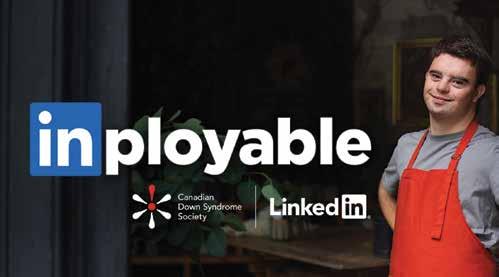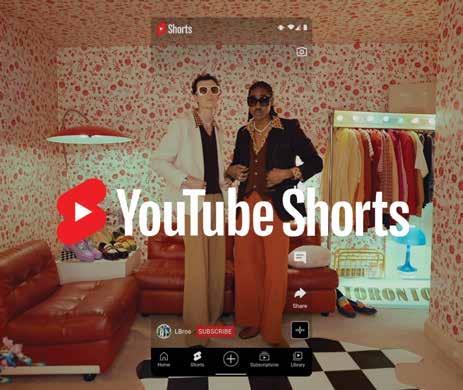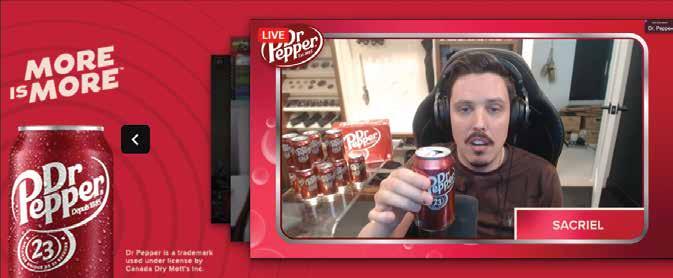
2 minute read
Canadian media is facing a pivotal point of change.

Be where trusted conversations have impact.

The Canadian media landscape is continuously evolving, and uncertainty has become part of every marketer’s daily reality. But in periods of significant change, there are always opportunities. That’s why at Globe Media Group, we are proud to sponsor this roundtable series. These forums unite industry visionaries and experts to illuminate the way forward through challenging times, helping us to envision a future we can be excited about.
Our change-making content can help you to reach ambitious Canadians making an impact.
That’s leadership you can count on.
Globe Media Group is proud to partner with strategy in driving influential conversations around media in Canada. Stay connected at globelink.ca were optimizing. And because of removing cookies, it is going to get dumber, so we needed to find other ways to move the needle, and be the ones who were smarter.
Where ambition meets influence.
Eriksson: I do think it’s very intoxicating, this drive of being able to measure everything. One thing I feel good about being a little old school is that we measure brand equity, brand power, we look at the whole funnel, as well as marketing mix modeling. The emotional connection and brand building is not just nice to have. When we look at our marketing mix modeling, that is still the highest ROI, especially if you can stretch it out over a masterbrand type of approach.
Irani: The metrics only get you to a certain point. For us, the data is about recalibrating the brand and almost mapping the demographic shift that’s happening. Our core demographic is younger than all of us in this room, but they’re still emerging into the lifestyle, so our advertising is being used to target those demographics more intensely to bring them in a few years from now. Everyone wants success every year, but we have to play a longer game because it’s a longer term purchase.
Are there any new tools, capabilities or concepts out there that you find particularly exciting when it comes to the goals you’re talking about?
Cuddy: I’m excited about synthetic data for training and understanding. Thinking about how you can leverage algorithms to drive decisioning and connections in a very direct but automated way in the CPG and retail media spaces is exciting. But I think the really interesting part is: how do you get that into big platforms to start to really leverage the investments they make in their systems, which I don’t think Google or Facebook have much incentive to allow. If you think about the role Google plays in all of this, it’s hard to overlook what their incentives are.
Bhopalsingh: That’s one of the big challenges with all of these models, interoperability. I love what’s being done with synthetic data and the investment that’s gone into building some of these models, but we’re finding they don’t necessarily work with our ways of buying media. It’s worth the discussion at a very high level to see how different methodologies would work for your organization, but I would be careful of folks coming in with different tools to help cover how that’s applied. It’s still early days and it’ll get to that 95% or 100% accuracy, but models are only as good as the data going into it. And that’s the other issue in Canada: we’re data poor. You find the more robust data sets out there, for the time being, are probabilistic.
Is Canada data poor because of its population, or its ability to scale?
Bhopalsingh: Maybe that’s a dangerous term. Because Canada never gets the credit it deserves for protecting the privacy of consumers. PIPEDA and CASL were leading legislation, globally, at the time they were introduced. It protected Canadian consumers from things other markets struggle with, and that’s a good thing. So maybe I’ll rephrase it from “data poor” to “being more









